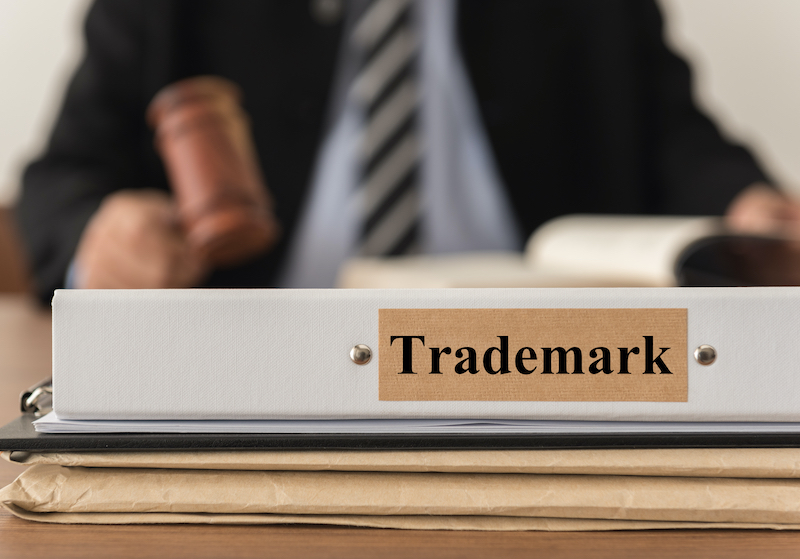Deciding on a trademark is one of the most important decisions your business will make. A strong, unique trademark can be quite an asset for your business when it comes to marketing and brand recognition. Unfortunately, many business owners do not put the same thought and analysis into their tradename as they do with other operational aspects of their business.
This lack of foresight can inhibit your business from standing out amongst the competition and even cause legal disputes in some cases. We have developed six tips to consider when registering your trademark.
1) Do Not Use Trademarks That Pose Registration Issues
First and foremost, there is no point in developing and investing time and marketing funds into a trademark that the United States Patent and Trademark Office (USPTO) will reject. Some common reasons for rejection are:
Likelihood of Confusion
Likelihood of confusion is the most cited reason for application rejection by the USPTO. If there is a high probability that members of the general public will confuse your trademark with another company or organization’s already existing trademark, your registration will not be granted.
Merely Descriptive and Deceptively Misdescriptive
As noted in the Lantham Act, “merely descriptive” and “deceptively misdescriptive (aka deceptive)” marks should not be permitted. A “merely descriptive” mark is one that simply calls out a characteristic of your service/product. For example, you would likely be prohibited from using the mark “Cold Beer” to sell beer, as it describes the actual product being sold and does nothing to differentiate it from other similar products. It would also have the effect of preventing other businesses from using the words “cold” and “beer.”
Similarly, a “deceptively misdescriptive” mark is one where the mark misdescribes a characteristic of the service/product. In essence, it is false advertising. For instance, false advertising would be selling tables under the trade name “Real Cedar” when they are not, in fact, made of cedar. This concept can also apply to geographically descriptive tradenames. For example, “Wisconsin Cheese” is a trademark for cheese that was actually made in Arizona.
Scandalous, Disparaging, and Immoral
One of the most popular examples of this type of trademark in recent years has been the Washington Redskins. In 2014, the USPTO canceled the registration of the “Redskins” mark. The Lanham Act allows the USPTO to cancel any mark that it deems “scandalous, disparaging, or immoral.” The context in these cases is critical, and approval of the mark is not guaranteed.
Ornamental Marks
As a general rule, if the proposed mark is merely used for decorative purposes, the application will likely be denied. This type of denial is common in artistic industries such as the fashion industry. For example, an “Established in 1987” t-shirt design does nothing to describe the type or brand of the shirt. It is simply a decorative addition.
Last Names
Last names usually cannot be registered as trademarks. The mark “Smith Boots,” for instance, is a poor choice for a trademark because “Smith” is a surname, a very common one at that, and the rest of the mark is descriptive. However, if you can establish that your last name had insufficient use in the marketplace, such that the public now associates the name with the product you are selling, you may have the opportunity to register the mark. This is the case for big brands like McDonald’s.
2) Say No to Generic Words, Instead Choose a Unique First Word
The goal is to select a trademark that is unique and distinct. Generic words, like colors, adjectives like “premium,” or variations on “America,” do not accomplish this. A better option is to utilize uniquely descriptive words in order to accurately convey what is being marketed. If a generic word must be used to thoroughly describe your product, try to make sure the first word in the mark is unique or distinct.
Acronyms and Numbers Are Not Your Best Bet
Keep in mind that acronyms can be difficult to remember. AT&T has been lucky to have their acronym associated with their products. However, they put millions of dollars into making the mark famous. Even a mark that is bad on its face can become a successful marketing tool, but, unfortunately, the average business owner may not have that financial luxury.
Another negative to acronyms and numbers is that there are a limited number of unused three to four-letter acronyms or number combinations that are still available. Because of this, there is a high likelihood that the mark you want is unavailable, possibly in use by a business in a completely unrelated industry.
Give Consumers An Experience
A trademark that reflects an experience or an action that relates to your product or service is a great idea from a marketing standpoint. For example, the name Zoom Video Communications gives uses the subconscious expectation that their video conferencing experience will be fast and simple to accomplish.
Create a Word
Also known as a “fanciful” trademark, a made-up word that only functions as a trademark, has a lot of potential. Since these are words that do not exist in any language, availability is rarely an issue, and, with good marketing, you have a greater chance of consumers only associating the word with your product. Pepsi, Spandex, and Xerox are prime examples. One of the easiest ways to develop a fanciful mark is to combine words. For instance, Microsoft is a blend of the words “microcomputer” and “software.”
Choose an Unrelated Word
Though a little harder to market, choosing a word that is unrelated to the service or product you’re promoting can help you stand out amongst industry competitors who are likely using repetitive or boring tradename styles. A good example of this is Apple. The word apple has nothing to do with computers; however, the company has managed to redefine and associate an existing word with a new meaning. Animal and plant words are good for this type of tradename (i.e., Tiger Balm).
Registering a strong trademark protects you from competitors, cements your ownership and enforcement rights, and allows you to put your best marketing foot forward. However, certain types of words are inherently difficult to register and availability is always a concern. Working with an experienced trademark attorney can be extremely beneficial in conducting trademark searches, avoid infringement, and developing an optimal mark.
Contact Counxel Legal Firm
If you would like more information about trademarks, contact us at (480) 744-6621 or at request@counxel.com. Don’t forget to check out the good things that others are saying about the services they received from Timothy Coons on Google.
This article is intended for informational purposes only and does not constitute legal advice for your specific situation. Use of and access to this article does not create an attorney-client relationship between you and Counxel Legal Firm. Please contact request@counxel.com or (480) 744-6621 to request specific information for your situation.
*Conveniently located off the 101 Freeway and the US 60 in the middle of Phoenix, Scottsdale, Tempe, Chandler, Gilbert, Mesa, and Queen Creek!



